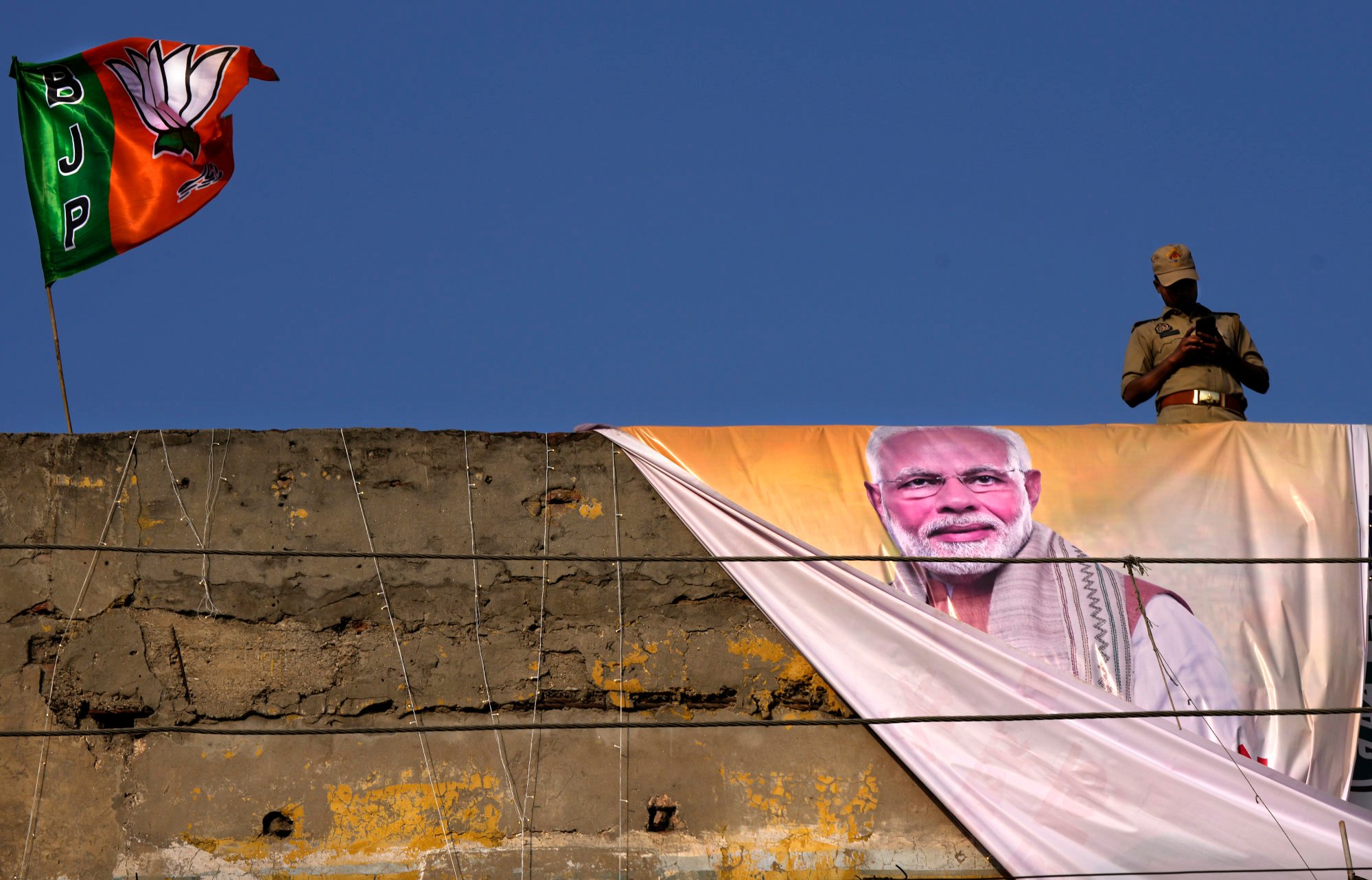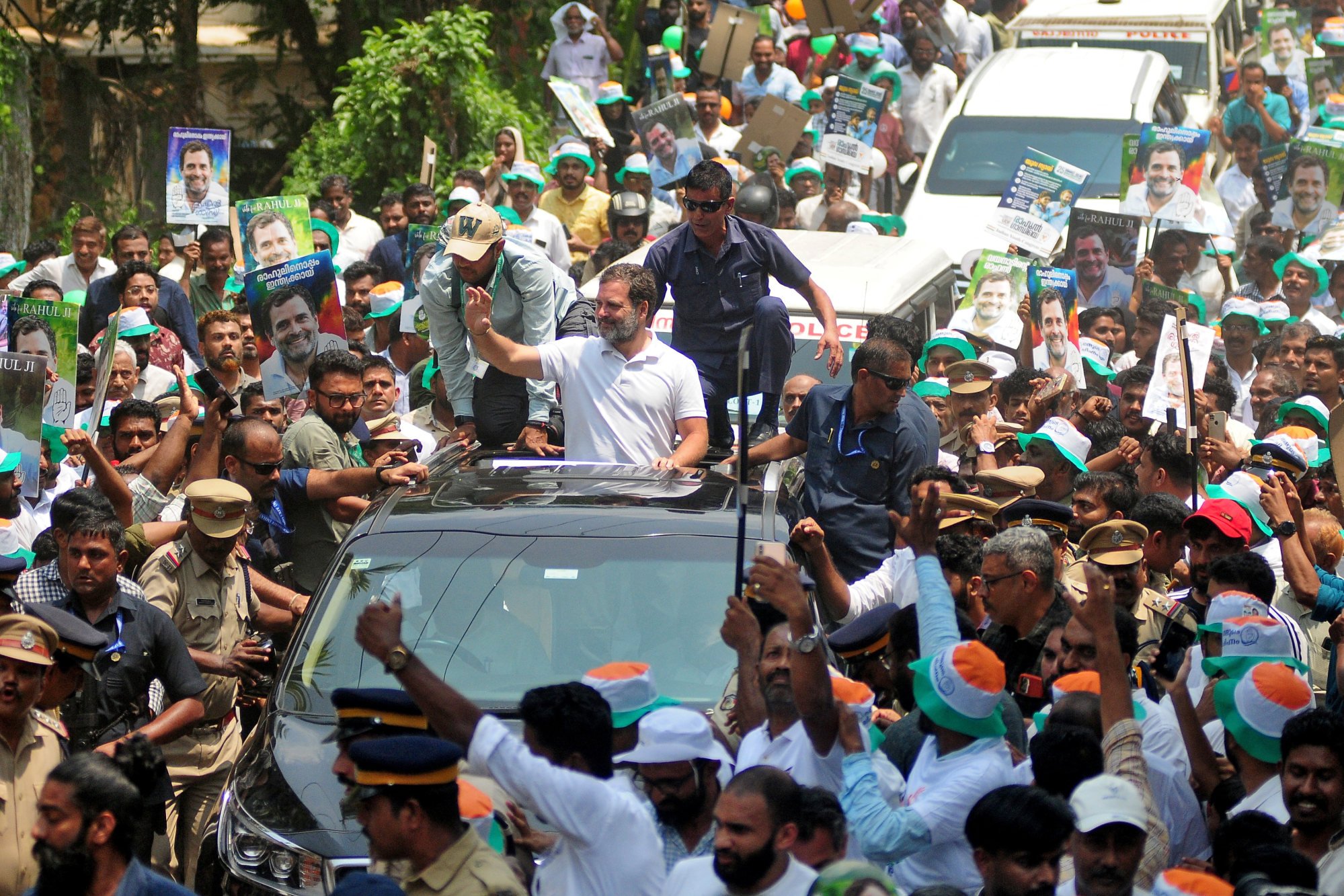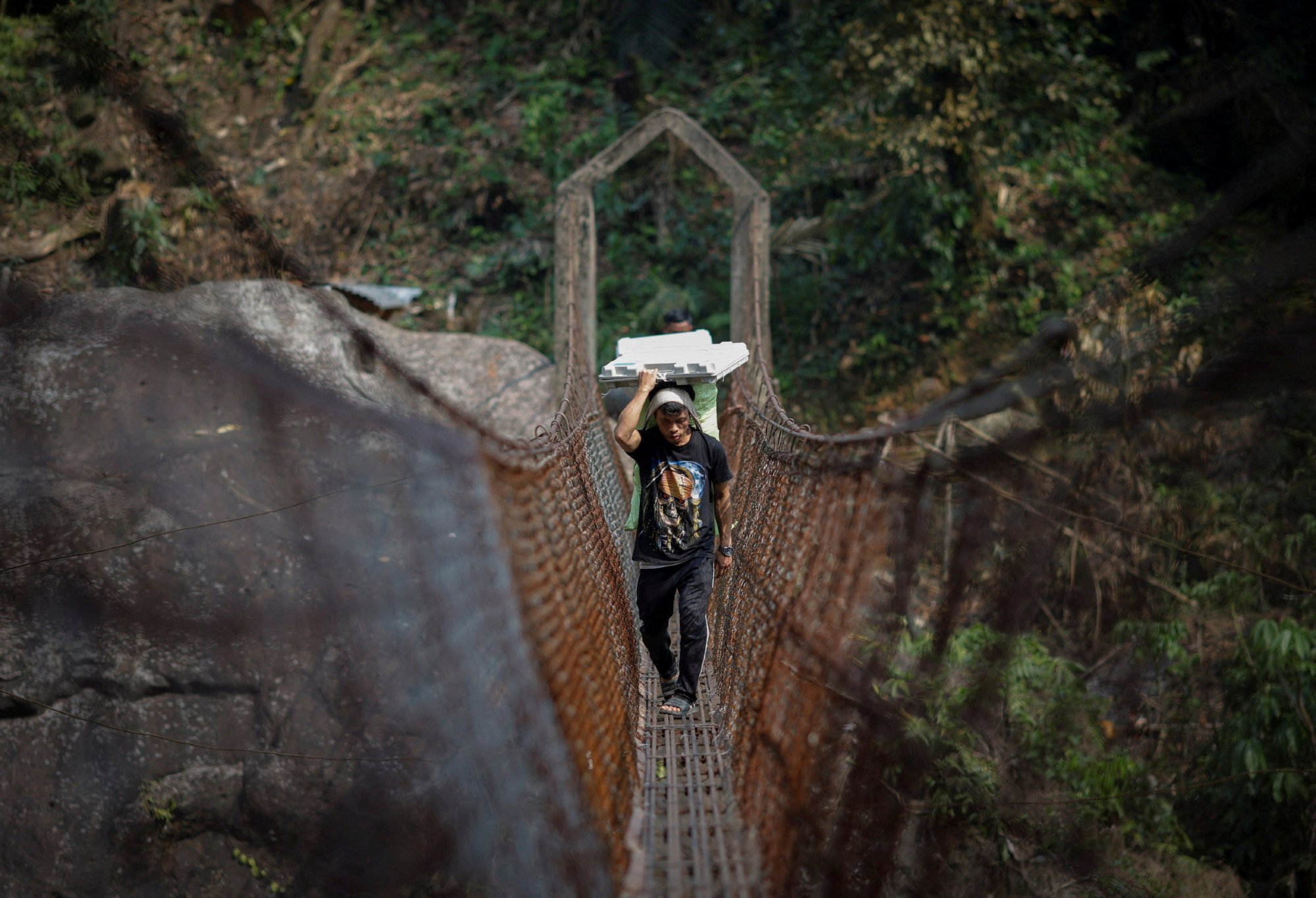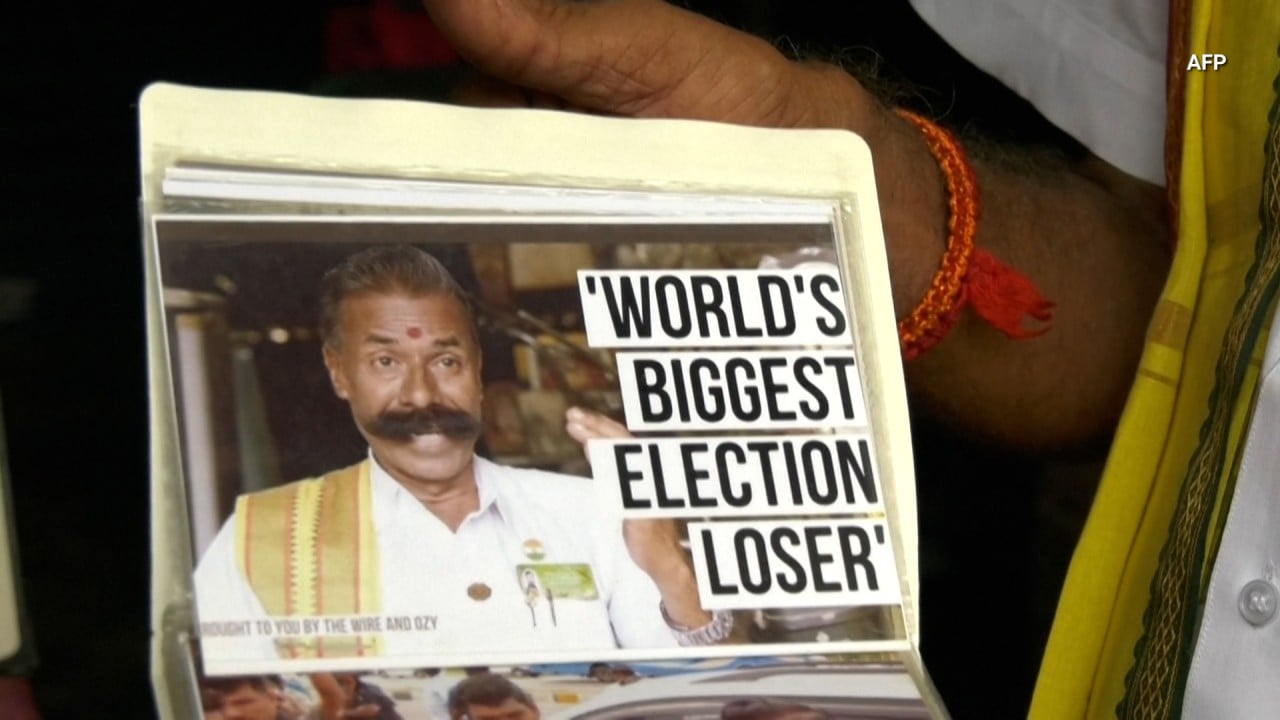India will host the world’s biggest general election on Friday, with nearly 1 billion people casting their ballots over the next six weeks.
Prime Minister Narendra Modi, 73, and his ruling Bharatiya Janata Party, are the favourites to win a high-stakes parliamentary election, analysts say.
A coalition of over a dozen opposition parties, dubbed the Indian National Developmental Inclusive Alliance (INDIA), led by the Congress party, hopes to deny Modi a third consecutive term.
Here are some key things to know about the candidates, the parties and the issues in this election.
Background
The BJP rose to power in 2014, and now rules with a coalition, the National Democratic Alliance. Modi enjoys widespread support among India’s Hindu majority, which accounts for 80 per cent of the population.
Modi’s Hindu nationalist policies have “appealed to a large segment since India has steadily tilted to the majoritarian right in the past decade”, said Ronojoy Sen, senior research fellow at the National University of Singapore’s South Asian Studies programme
But it was a “well oiled and funded party machinery” that played up his achievements to voters, he said.
India’s citizenship law slammed as anti-Muslim and Modi’s election ploy
India’s citizenship law slammed as anti-Muslim and Modi’s election ploy
In January, Modi was seen to have consolidated support from Hindus, by fulfilling his party’s long-held promise of opening a Hindu temple in the city of Ayodhya, on a site disputed by Hindus and Muslims.
But experts say many Indians also supported Modi because of his efforts to highlight India on the global stage, attracting foreign investment to the country, hosting the G20 summit last year, and reinvesting with its partners in the Quadrilateral Security Dialogue (the Quad) amid its border rivalry with China.
“In many ways, this election is a referendum on Modi’s performance during his 10 years in office,” said Niranjan Sahoo, a senior fellow at Delhi-based Observer Research Foundation.
“This is an election which will indicate whether he has been able to deliver on the many promises he has made to the Indian public since 2014.”

Issues
A major issue headlining this election is the BJP’s struggles with high levels of unemployment.
Despite being the fastest growing economy in the world, some major studies and surveys have showed higher unemployment, especially among India’s educated youth, Sahoo said.
At the end of last year, unemployment among young people aged 20 to 24 stood at 44.9 per cent, according to India’s National Sample Survey.
“This is a major issue that Modi’s government has struggled to address in the last 10 years … the economy is growing at a very impressive rate, but it’s not producing many quality jobs,” Sahoo said.
Unemployment and high inflation topped voters’ concerns, in the latest pre-poll survey conducted by research centre Lokniti-CSDS, but analysts say these are unlikely to significantly affect the BJP’s performance in the election.
“There are many voters who are willing to put Hindu nationalism first and other concerns down the pecking order,” Sen said of the poll.
Is India’s opposition ‘in disarray’ to challenge Narendra Modi in election?
Is India’s opposition ‘in disarray’ to challenge Narendra Modi in election?
Who are the contenders?
The main challenger to Modi and the BJP is the Congress party and its senior leader Rahul Gandhi.
Congress – which has ruled India for the longest span since independence from Britain in 1967 – has seen two consecutive electoral defeats to the BJP. Last year, Gandhi embarked on a 3,500km (2,200-mile) trek across India to garner support from voters.
Analysts say the march had limited success, and that the party’s best chance at taking votes from the BJP is to ally with other regional parties, like the Aam Aadmi Party and the All India Trinamool Congress.

But this opposition alliance encountered challenges, with infighting and ideological differences pushing party leaders to quit, some even defecting to the BJP.
“The opposition is fragmented, and the Congress party is in a bad shape,” Sen said.
“Opposition politicians have been targeted by the government, with some in jail on corruption charges,” he said. “Those who switch to the BJP have often had charges dropped against them.”
Why is this election important?
High on Modi’s agenda this election is to shore up support in India’s southern states, where the BJP has struggled to gain prominence.
“The BJP is often accused of being a North Indian party, because it does not have too strong a foothold or presence in the south and eastern regions of India,” Sahoo said.
On the global stage, a victory for Modi might consolidate the prime minister’s efforts to make India a key player internationally, analysts say.
“A lot of people see that a win by Modi might actually further elevate India’s position … particularly India’s role as a key leader of the Global South,” Sahoo said.
Despite concerns about the decline of India’s democracy under Modi’s rule, analysts say these have very limited effect.
“Most Western governments don’t really care much about the quality of India’s democracy so long as they can do business with India,” Sen said.

India’s voting system
Nearly 970 million people are eligible to cast their votes in India’s 18th general election from April 19 to June 1, with results announced on June 4.
Citizens aged 18 and older are allowed to vote. This year, more than 18 million young people are registered as first-time voters, according to the Indian Election Commission.
Candidates are vying for the 543 contested seats in the Lok Sabha, the lower house of parliament. India’s President Droupadi Murmu will appoint the two remaining seats in the Lok Sabha.
Voters cast a vote for a single candidate in their constituency, and the candidate with the most number of votes will win the seat. The first party to secure a simple majority of 272 seats will select one of its winning candidates as the prime minister and form the ruling government.
The BJP won 303 seats out of 543 in the Lok Sabha in the 2019 general election. This year, it aims to win 370 seats on its own and 400 together with allies under the National Democratic Alliance.
There are over a million polling stations across the country. Some 15 million polling officials and security personnel will get to voters using road transport, camels, trains, and helicopters, to ensure that voting machines are accessible within 2km of every home, even in remote areas such as the snow-peaked Himalayas and the deserts of Rajasthan.



